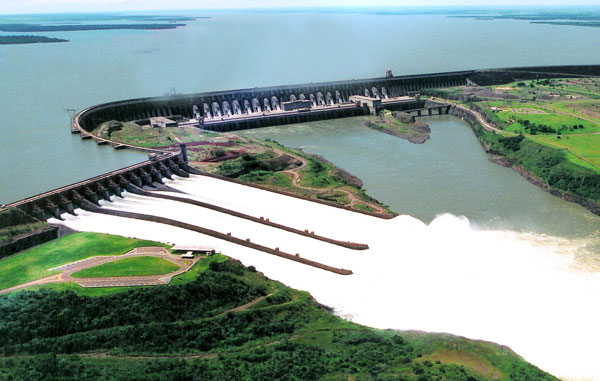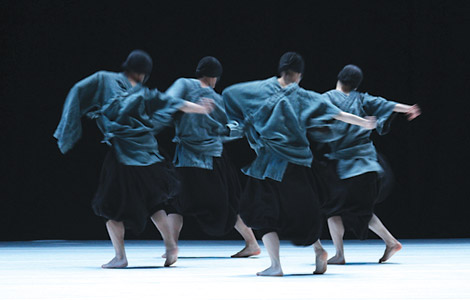China set to bid on troubled Brazil dam
Updated: 2014-02-03 06:16
By CHRIS DAVIS in New York (China Daily Latin America)
|
||||||||
 |
|
A portion of the massive Belo Monte dam on Brazil’s Xingu River is planned to give a huge boost to the country’s power grid and China is bidding to help plug it in. provided to China Daily |
The transmission system for Brazil's mammoth Belo Monte dam complex on the Xingu River — the first direct current ultra-high-voltage line (800 KV) in Brazil — is the biggest auction of the year in that country's energy game. A consortium made up of China State Grid and Brazil's own Eletrobras is considered the odds on favorite to get the job, according to Valor Económico, a financial daily.
Winning the auction, which is slated for Feb 7, will come with a hefty price tag. The victor will be required to build two conversion stations, a pair of sub stations and 1,300 miles of transmission wires connecting Altamira in Pará with Estreito in Minas Gerais in the south, an infrastructure investment at an estimated cost of more than $2 billion.
China State Grid has a 51 percent stake in the consortium; Eletrobras holds the remaining 49 percent. Both state-owned, the Chinese group is the largest power transmission company in the world and Eletrobras, with a power grid covering 58,000 kilometres, lights up 52 percent of Brazil's total grid, Macauhub reports.
The capacity of the dam — 11,233 megawatts — would make it the third largest in the world, behind the Three Gorges Dam in China and the Itaipu Dam shared by Brazil and Paraguay. The transmission lines up for bidding will connect the electricity generated by the dam's turbines to the nation's vast power grid for distribution for both commercial and residential use.
Brazil's fast-paced economic growth in the past 10 years has created a large demand for energy and hydroelectric power plants provide more than 85 percent of the nation's electrical energy.
The Belo Monte complex of dams is not without controversy, with critics both within Brazil and internationally faulting the economics of the project, the efficiency of its design in producing electricity and, most of all, its impact on the region's indigenous people and environment.
A spokesman for the watchdog group International Rivers told China Daily USA "this is the most destructive and controversial dam being built in Brazil currently, perhaps in the world", policy program coordinator Zachary Hurwitz wrote in an email interview.
"The project is perhaps the most explicit example today of violation of the ILO (International Labor Organization) Conventions, the UNDRIP (United Nations Declaration on the Rights of Indigenous Peoples), and, at its base, poor project design, poor stakeholder relations, and poor transparency, among all dams under construction today," Hurwitz wrote.
He said the project had been unilaterally approved by the Brazilian government in 2005 without an environmental impact assessment. Lawsuits against the project were unilaterally overturned by the government, he added.
"Indigenous people, workers, fishermen and locals from the region of Altamira and Vitora do Xingu have taken to protest, occupation of the worker sites, and other tactics to call attention to the poor performance of the government and developers on this project," Hurwitz wrote. "The government has responded by militarizing the project areas and building fences to keep out protests.
"There is a backlog of about 15 to 18 lawsuits on the project which haven't been heard in court," he added. "And the government refuses to have the judiciary move those along."
In September 2012, China's State Grid Corp said it planned to invest $5 billion in Brazil by 2015, where the chairman of the group's Brazilian subsidiary, Cai Hongxian, said the company saw opportunities in all aspects of the power sector in Brazil.
"There are many investment opportunities in generation, transmission and distribution," said Cai speaking to financial news agency Reuters at the time.
China State Grid got into the Brazilian power market in 2010 when it acquired a 25 percent stake in two power lines owned by Plena Emissoras group for an undisclosed amount and two years later bought seven power transmission lines from Spanish group Actividades de Construcción y Servicios (ACS) for $1.03 billion.
It was the group's fourth acquisition outside of China and made China State Grid Corp Brazil's fifth- largest energy company.
Most Viewed
Editor's Picks

|

|

|

|

|

|
Today's Top News
US space telescope spots 715 more planets
Bags banned in Boston Marathon
Asiana fined $500,000 over SF crash
TPP talks in final stretch
Spotlight on Chinese publishing
Weibo faces modest growth in '14
Services top US firms' revenue
US planning full Afghan pullout
US Weekly

|

|













